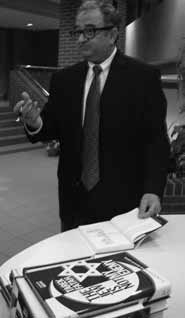Suddenly, Pakistan focuses all eyes. As stated by the writer Hanif Kureishi recently, this country could be compared to Berlin after the war, when the wall did not exist. There, as in Vienna, met two worlds, East and West, who collaborated with armies and s'épiaient a little much: the city was full of spies, double or triple of arms dealers activists and illegal immigrants.
Times are changing, presence in the camps too. The fact remains that Pakistan is at break of both worlds. It includes everything from freedom-loving lawyers that worked for institutions that are not violated (in 2008) and other lawyers who in recent days offer their prayers to Ben Laden.
There are politicians who are dealing with an omnipotent army, pro-Chinese or Indian spies, and of course the CIA and several U.S. military. In this country of 180 million people rub a very westernized elite, almost British, and Islamic madrasas, some are close to the most violent movements.
As in Berlin in 1950, Pakistan was the site of several geopolitical disputes, some regional, others global. Number of military and intelligence officials defend the interests first of their country: they want to replace the Taliban regime in Afghanistan to create a strategic depth and better defend itself against claims of India (in Kashmir particular).
Some senior officers have protected bin Laden, as they kept a card in their game Others have thought it was time to "give" to the Americans. But at a broader level, Pakistan, one of the breeding grounds of radical Islam, is also the site of a secret rivalry between Beijing and Washington.
That is why the U.S. has given billions of dollars to the Pakistani army and will continue to do so, despite the current cooling (see our dossier). Especially at Karachi no wall will never separate these antagonistic worlds and yet intertwined. 


Times are changing, presence in the camps too. The fact remains that Pakistan is at break of both worlds. It includes everything from freedom-loving lawyers that worked for institutions that are not violated (in 2008) and other lawyers who in recent days offer their prayers to Ben Laden.
There are politicians who are dealing with an omnipotent army, pro-Chinese or Indian spies, and of course the CIA and several U.S. military. In this country of 180 million people rub a very westernized elite, almost British, and Islamic madrasas, some are close to the most violent movements.
As in Berlin in 1950, Pakistan was the site of several geopolitical disputes, some regional, others global. Number of military and intelligence officials defend the interests first of their country: they want to replace the Taliban regime in Afghanistan to create a strategic depth and better defend itself against claims of India (in Kashmir particular).
Some senior officers have protected bin Laden, as they kept a card in their game Others have thought it was time to "give" to the Americans. But at a broader level, Pakistan, one of the breeding grounds of radical Islam, is also the site of a secret rivalry between Beijing and Washington.
That is why the U.S. has given billions of dollars to the Pakistani army and will continue to do so, despite the current cooling (see our dossier). Especially at Karachi no wall will never separate these antagonistic worlds and yet intertwined.



No comments:
Post a Comment